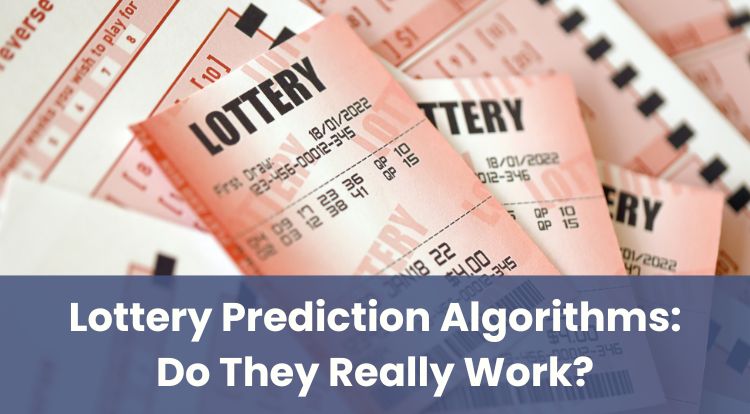
Lottery draws have been a regular part of everyday life for many people, with some turning to technology in the hope of making more informed choices. Prediction algorithms, in particular, have gained attention for claiming to spot patterns or trends in previous results.
But can these algorithms actually improve your odds? Or is the lottery designed in such a way that no system—digital or otherwise—can predict the outcome?
In this blog post, we take a closer look at how prediction algorithms work, what they promise, and whether those claims hold up. Read on to learn more.
What Is a Lottery Prediction Algorithm?
A lottery prediction algorithm is a type of computer program that suggests which numbers might appear in future draws. These tools usually analyse past results, searching for patterns or trends that seem to repeat over time.
Some algorithms take a simple approach—pointing out numbers that have appeared often or those that haven’t come up in a while. Others use more complex methods, such as mathematical models or detailed data analysis, in an effort to highlight potential number combinations.
Can Lottery Numbers Be Predicted?
Lottery draws are carefully structured to ensure fairness, with every number having an equal chance of being selected. Specialised machines are used to produce completely random outcomes, and regular checks by both organisers and regulators help maintain this standard.
Some players choose to study past results or use them to guide their number selections. While this can feel like a more considered approach, there’s no proven connection between these strategies and improved odds. Even if certain numbers seem to come up more often, each draw is independent—what’s happened before has no impact on future results.
Ultimately, lottery numbers can’t be predicted. Regardless of the method or system used, the outcome remains random by design.
How Lottery Prediction AI Tools Claim To Work
Some lottery prediction tools now use Artificial Intelligence (AI), claiming to analyse patterns more effectively than manual methods. These programs scan large sets of past draw data, using machine learning to identify number frequencies or combinations that appear more—or less—often over time.
The idea is that this kind of analysis can offer insights to help guide future number selections. AI tools often present charts or breakdowns showing which numbers have been drawn most frequently or which ones haven’t appeared for a while. While this might seem like a more scientific approach, it’s still based on historical results—and as with other systems, it can’t account for the randomness built into every draw.
Why You Shouldn't Trust Lottery Prediction Software
If you choose to play the lottery and are thinking about using prediction software, it’s worth approaching these tools with caution. Despite how they’re advertised, no software—regardless of how advanced it claims to be—can predict the outcome of a truly random draw. The technology simply doesn't exist to forecast future winning numbers.
Most official lotteries are designed to be completely fair and unpredictable. Strict procedures, regulatory oversight, and secure draw systems are all in place to ensure that no one has an unfair advantage. That includes anyone using prediction software or pattern-based tools.
You might come across programs that promise better chances or ‘smarter’ number picks, but these tools rarely explain how their suggestions are generated. Without transparency or proof of effectiveness, it’s difficult to put much trust in what they offer.
If you’re considering using such software, it helps to keep in mind how lotteries work—and why outcomes are always random. Sticking to your own limits and approaching these tools with clear expectations can help you make more informed, responsible decisions if you choose to play.
**The information provided in this blog is intended for educational purposes and should not be construed as betting advice or a guarantee of success. Always gamble responsibly.
